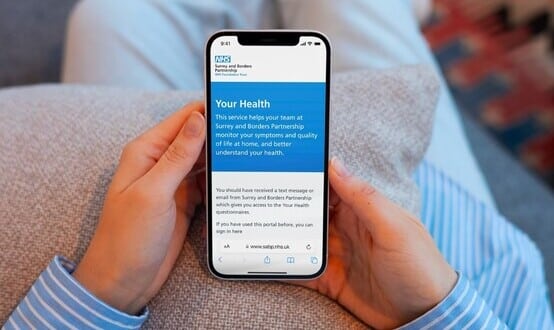Revised plan for ‘sealed envelopes’ published
- 18 December 2006
Sealed envelopes are likely to become available from 2008/9, according to the latest briefing paper from NHS Connecting for Health which outlines plans to allow patients to make clinical information invisible if they choose.
The revised plans for sealed envelopes mean that patients can opt to have sensitive information “sealed” or “sealed and locked” from everyone other than the author and people in the same “workgroup” as the author. Information that is “sealed” could be opened by users outside the workgroup with the patient’s permission but where information is “sealed and locked” users outside the work group would be unaware that the sealed information existed.
The proposals reflect a revised approach to sealing agreed by the NHS Care Record Service Programme Board this autumn designed to simplify patient sealing and to base sealing on a team or workgroup rather than a legal organisation or an individual.
The briefing paper says: “A balance has been struck between flexibility for patients to express access restrictions, and the need to limit complexity so that computer and people systems can work in practice.”
Dr Gillian Braunold, joint GP clinical lead for CfH, told EHI Primary Care that it was important to note that the current proposals were also subject to development over time. She added: “It’s there for people to comment on and give feedback on and we can see how it works and how the human processes work over the years.”
The briefing paper identifies 2008/9 as the likely date from which sealed envelope functionality would be available but Dr Braunold said the commonly used GP systems already had some patient sealing functionality which would be employed by the early adopter pilots for the Summary Care Record.
When the full sealed envelope functionality is developed patients will be able to identify information in their medical record that they wish only to be accessible with their consent. Clinicians will also be able to seal information for example where a record contains confidential information about a third party or where a clinician wants to hold back information temporarily until they have had a chance to explain its significance to the patient, such as a potentially alarming test result.
The system means that the author and members of the work group with access permission would still be able to access the sealed or sealed and locked information. Anyone outside the workgroup attempting to access “sealed” information would view a message telling them that the information is only available with the patient’s permission. The message will add: “To view the information, do <Y>, but be aware that an alert will be sent to a privacy officer within your organisation, and if you are found to have accessed this confidential information inappropriately, disciplinary action will be taken against you for breach of patient confidentiality.”
No icon or message will be displayed where the patient has sealed some data, for example a mental health episode, and the user is not attempting to access it, but instead is accessing another part of the electronic record such as the patient’s screening appointment.
Where information is “sealed and locked” a user in another workgroup would be unaware that the information has been withheld. The paper says the mechanisms for how the sealed envelope systems will operation with decision support software are still being developed.
Patients will be able to have any part of their Summary Care Record or Detailed Care Record sealed except their demographics, information that the patient is not entitled to see such as third party data, information that should not be sealed in the overriding public interest or is not in the patient’s best interests to seal, and information which the paper says “is not feasible” to seal such as part of an image that is part of a letter that has been scanned in.
Sealing requests will apply to all copies of information but if a patient transfers from one general practice to another the new general practice will gain any rights of the previous practice to access sealed data within the patient’s record.
Link
http://www.connectingforhealth.nhs.uk/crdb



